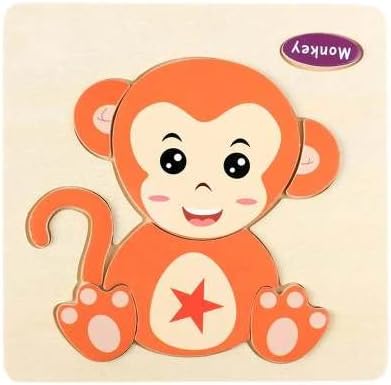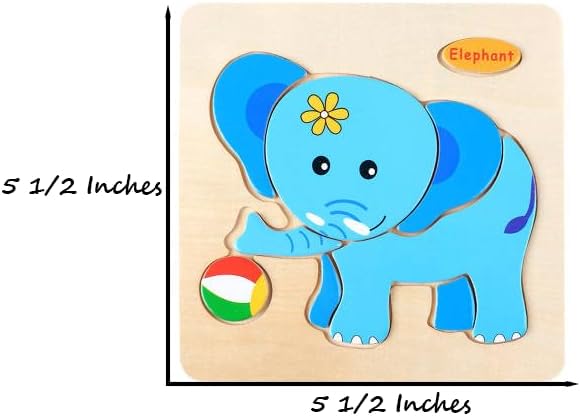








Price: $19.99
(as of Jun 24,2023 23:28:37 UTC – Details)

Wooden pegged puzzles are a great educational tool for children to help develop their hand-eye coordination, motor skills, problem-solving abilities, and spatial awareness.
1. Cognitive Development: Animal puzzles can enhance cognitive skills such as problem-solving, logical thinking, and spatial reasoning. As children manipulate and fit puzzle pieces together, they learn to analyze shapes, sizes, and patterns, which promotes critical thinking. 2. Fine Motor Skills: Picking up and manipulating puzzle pieces helps children develop their fine motor skills and hand-eye coordination. The precise movements required to fit pieces together can improve their dexterity and control.
2. Fine Motor Skills: Picking up and manipulating puzzle pieces helps children develop their fine motor skills and hand-eye coordination. The precise movements required to fit pieces together can improve their dexterity and control.
3. Language Development: Animal puzzles can provide opportunities for language development. As children engage with the puzzles, you can encourage them to name the animals, imitate their sounds, and describe their characteristics. This promotes vocabulary acquisition and language skills.
4. Animal Recognition: Animal puzzles offer an interactive way for children to learn Wooden pegged puzzles are a great educational tool for children to help develop their hand-eye coordination, motor skills, problem-solving abilities, and spatial awareness about different animals. Through puzzle play, they can identify and differentiate between various species, learn about their habitats, and understand their distinct features.
5. Problem-Solving and Persistence: Completing a puzzle requires problem-solving skills and perseverance. Children learn to analyze the available pieces, make connections, and persist in finding the right solution. This fosters a sense of achievement and builds resilience.
6. Social and Emotional Development: Animal puzzles can be used collaboratively, promoting social interaction and teamwork. When children work together to solve puzzles, they learn to communicate, share ideas, and take turns, fostering cooperation and emotional development.





